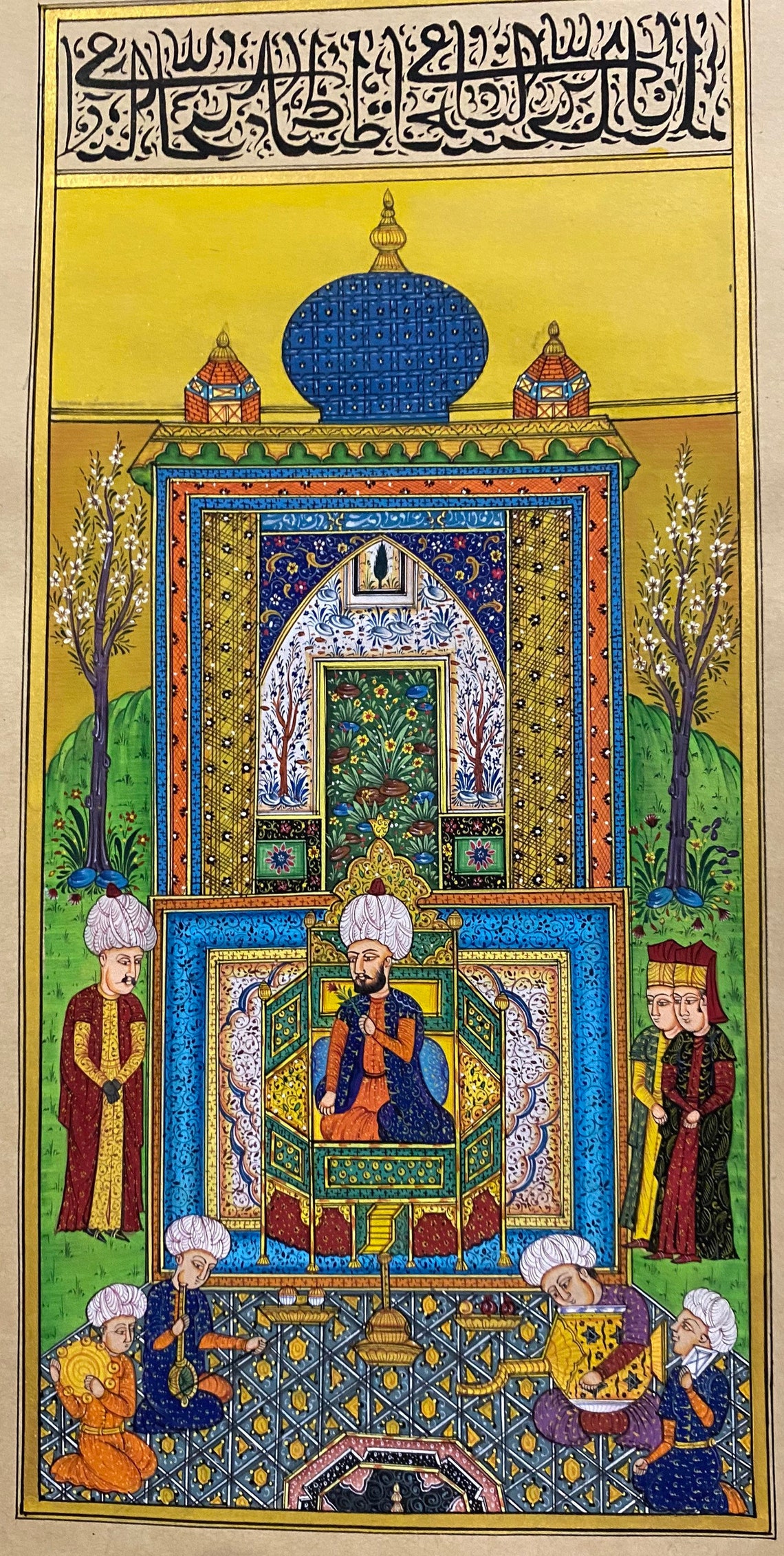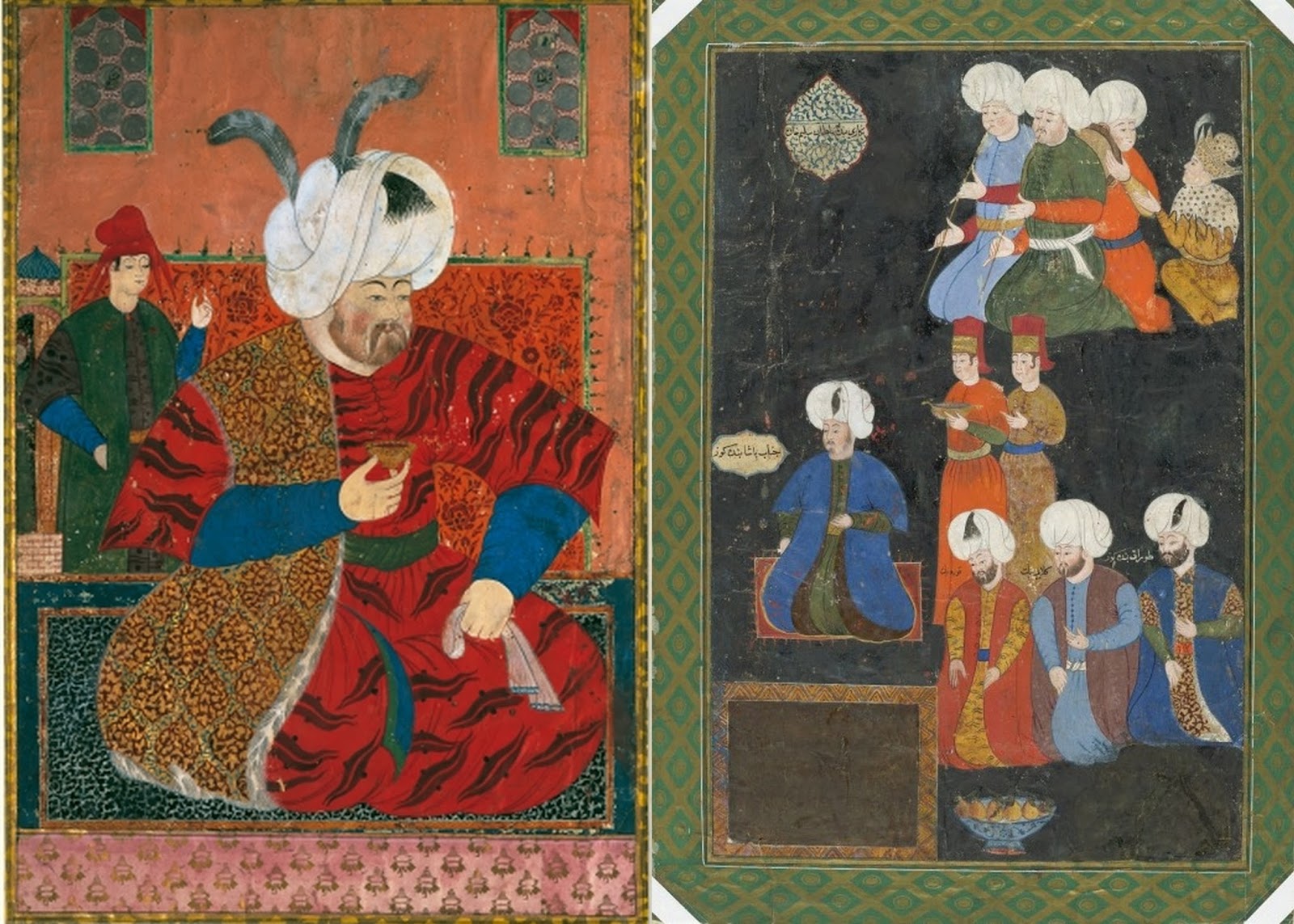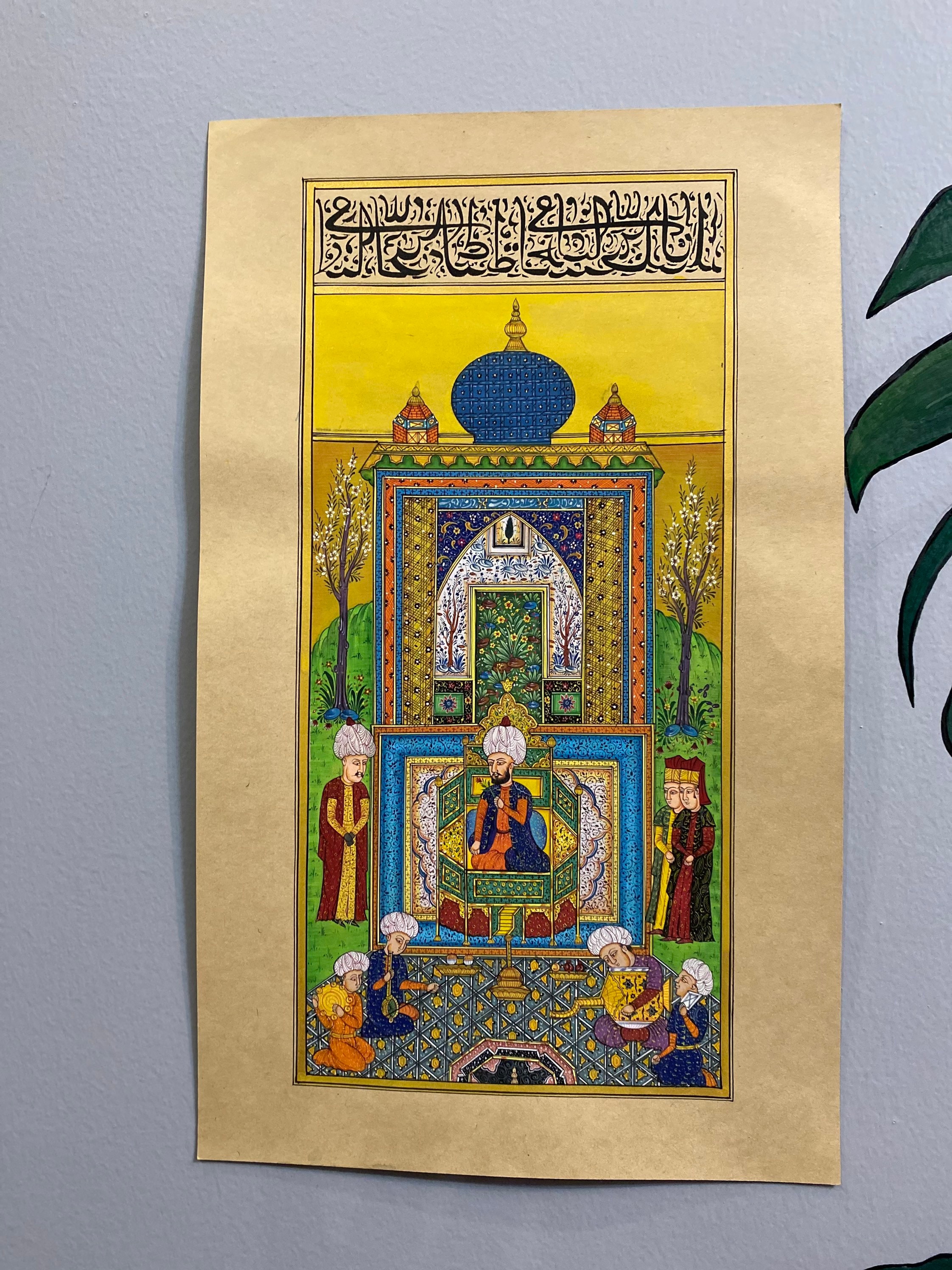
Handmade Ottoman Miniature Painting / Suleyman the Magnificent Etsy
Ottoman miniature ( Turkish: Osmanlı minyatürü) or Turkish miniature was a Turkish art form in the Ottoman Empire, which can be linked to the Persian miniature tradition, [1] as well as strong Chinese artistic influences.

Ottoman miniature depicting the execution of Serbian rebels in Belgrade (from the Süleymannâme
Miniature of Sinon and the Trojan Horse, from the Vergilius Romanus, a manuscript of Virgil's Aeneid, early 5th century. A miniature (from the Latin verb miniare, "to colour with minium", a red lead) is a small illustration used to decorate an ancient or medieval illuminated manuscript; the simple illustrations of the early codices having been miniated or delineated with that pigment.

Ottoman miniature Turkish art, Islamic art, Art
Help Category:Ottoman miniatures From Wikimedia Commons, the free media repository Subcategories This category has the following 18 subcategories, out of 18 total. 15th-century Ottoman miniatures (1 C, 2 F) 16th-century Ottoman miniatures (8 C, 46 F) 17th-century Ottoman miniatures (3 C, 9 F) 18th-century Ottoman miniatures (9 F)

Image gallery painting / miniature / album Gibi
Matrakçı Nasuh was a famous miniature painter during the reigns of Selim I and Suleyman the Magnificent. He created a new painting genre called a topographic painting. He painted cities, ports, and castles without any human figures and combined scenes observed from different viewpoints in one picture.

Persian Miniature, Miniature Art, Miniature Paintings, Islamic Paintings, Indian Paintings
OTTOMAN MINIATURE PAINTING UNDER SULTAN MEHMED II 105 quantity of religious books, especially Bibles, there were over fifty volumes dealing with historical, geographical and military sub-jects.4 Mehmed II's involvement with the West and his desire for a worldwide empire is suggested by his contacts with Western scholars and relations with the.

Ottoman Archives (OttomanArchive) Vintage illustration art, Mughal paintings, Turkish art
During the Ottoman Empire, the Turkish traditions of decorating pottery vessels emerged as they developed new patterns and designs, which were heavily influenced by Chinese culture.. 4 It was the Persian miniature that gave rise to the two other main schools of miniature painting: Ottoman Turkish and Mughal. Although Firdawsi's epic was.

Handmade Ottoman Miniature Painting / Bazaar Etsy
The portraits of the Ottoman sultans were also an important theme for the miniature art. This art form only began after the conquest of Istanbul. I therefore visited the historical museum in Istanbul. Within the Historical Museum from 1453 you can see an enormous panoramic painting depicting the capture of the city by the Ottoman Empire.

Osman Hamdy Bey The First and Last Orientalist Painter of the Ottoman Empire Orientalist
Original Ottoman Turkish Miniature Painting Art, With Gold Leaf, Handmade, Hand Painted, Home Deco, Old, Vintage, Antique. (22) $130.00. FREE shipping. IV. Murad Portrait Photo Print Canvas, The Sultans Of Ottoman Empire, Timurid Empire Portrait Canvas, Historical Painting, Wall art decor. (47) $51.60.

This is How Ottoman Miniature Art Had a Great Influence on Documenting History Mvslim
Apologies if I don't sound coherent, or if I happen to have the wrong facts. I have been reading the book My name is red by Orhan Pamuk revolving around miniature painters in Ottoman empire. Now in the book some characters say that painting a portrait was blasphemy and not what Islam favoured. Islam only allowed painting along textures in.

73 best Ottoman Turkish miniatures images on Pinterest Ottoman empire, Ottomans and
(155) $75.00 Original Ottoman Turkish Miniature Painting Art,Miniature Painting on Antique Paper,Handmade,Hand Painted,Home Deco,,Old,Vintage,Antique (85) $39.60 $52.79 (25% off) FREE shipping Vintage Handcrafted Master Work Ottoman Turkish Islamic Miniature Painting Art (24) $275.00

This is How Ottoman Miniature Art Had a Great Influence on Documenting History Mvslim
Every miniature provides value and a historic certificate to the events portrayed. The protection, care and support of art was a result of the Turkish ideology and ethics. The Ottoman Empire was accepted as a public foundation and a public service for the arts. They were organised in connection with the palace.

This is How Ottoman Miniature Art Had a Great Influence on Documenting History Mvslim
Within the Historical Museum from 1453 you can see an enormous panoramic painting depicting the capture of the city by the Ottoman Empire. The basics of the Ottoman Empire are located in faith. Islam played a major role in the daily life of people and the values of Islam were the basic principles in society.

Picturing History at the Ottoman Court
An indispensable reference book, the lavishly illustrated Ottoman Figurative Arts I: Miniature covers the stages in the development of the art in the Ottoman Empire, an overview of the studios, techniques and methods of this courtly art, and includes a splendid Album of portraits, lives of the sultans, the palace, festivals, literary works, reli.

Turkish art, Miniature painting, Islamic paintings
In the Ottoman era, miniature art was produced for more than three hundred years. The earliest Ottoman Turkish miniatures were created under the patronage of Sultan Mehmed II some 150 years after the establishment of the Ottoman state. Sultan Mehmed the Conqueror was not only a truly great statesman but a cultured man of liberal outlook.

Ottoman miniature Matrakçı Nasuh Kartografya, Minyatürler, Sanat
Ottoman Janissaries and the defending Knights of St. John during the Siege of Rhodes (1522), Süleymanname. Turkish miniatures are a form of Turkish art that flourished during the Ottoman Empire.

Handmade Ottoman Miniature Painting / Suleyman the Magnificent Etsy
The basic characteristics of form, design, colour and representation in Turkish art developed primarily in the realm of miniature painting. The Turkish miniature style was influenced by many trends and developed over the centuries from the empires of Central Asia to the Seljuks and from the foundation of the Ottoman Empire to the conquest of Istanbul and the Tulip era.